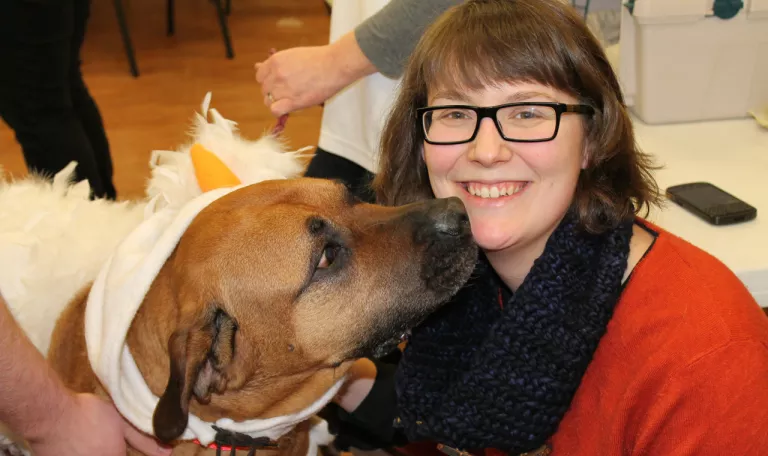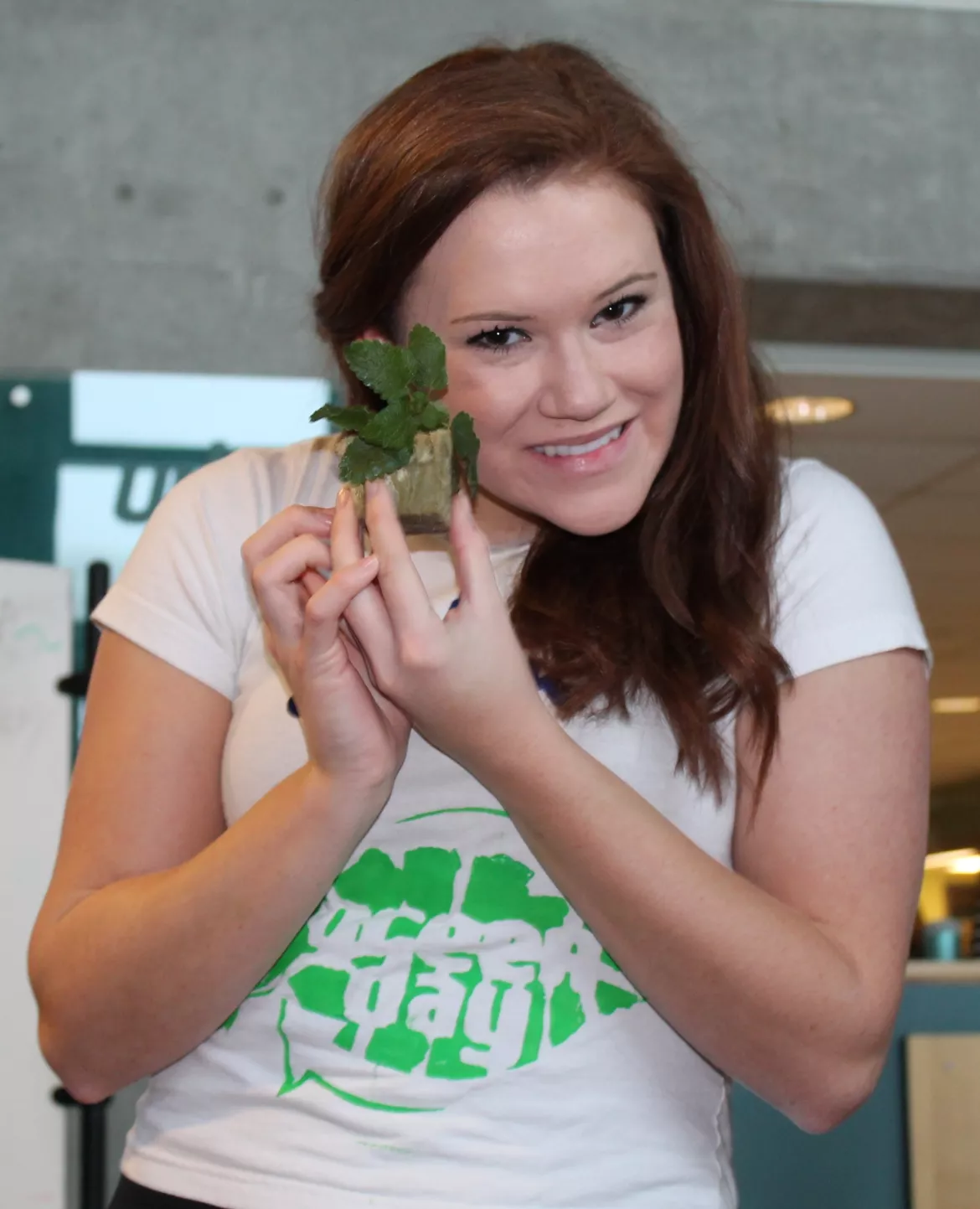The Future of Food at UNBC
For Serena Black, UNBC graduate student of Science in Natural Resources and Environmental Studies and self-professed “foodie,” food is a constant source of contemplation. As she connects with food producers in the region, Serena’s research on barley has provided her with a heightened awareness of the food security and agricultural issues in the North. And there is good reason for that: according to research undertaken at UNBC, Prince George would run out of food in an estimated two to three days given an emergency or natural disaster that cuts off supplies from the South. Fortunately, we do not need to be so dependent upon and vulnerable to imported food; Serena assures us that it is possible to increase the local region’s food production capacity by supporting local farmers both economically and with locally relevant agricultural research.
Since the 1990s, local food producers in Northern British Columbia have been forced to take on the responsibilities of agricultural research and innovation, as federal extension services have diminished. Though many farmers work 12-18 hour days, they find time to test new varieties of crops, try out innovative farming management practices, and develop novel growing techniques. Prior to 1990 there were two federally-funded experimental farms established in the North, one in Smithers, and the other in Prince George. These farms were important resources to farmers and provided many of the services that they now must take on for themselves. These days, the Ministry of Agriculture agents generally refer food producers to the Okanagan or even the Prairies for information and resources that may not always be pertinent to the North.
Fortunately, UNBC has begun to take on a leadership role within the agricultural sector. Concern for local food can be considered part of UNBC’s mission to “serve our vast region by nurturing relationships and being innovative, resourceful and responsive to student and community needs.” It is because of this that much of UNBC’s research addresses the environmental, economic, social, and cultural issues of the North. Members of our campus community are increasingly recognizing how agriculture is found at the intersection of these elements.

Though the University does not yet offer a degree program in Agriculture, Serena stresses that there are many opportunities to get involved. It is possible to complete agriculture prerequisites at UNBC, as well as pursue graduate studies in an area of interest. Serena notes that the flexibility of the research opportunities is especially attractive: “UNBC is willing to go with what students are saying is important; and that is how you give students a real education, by allowing them to engage with their interests on campus. They will be ten times more successful once they’ve graduated and moved on.”
Not only is our University supportive of student interest in agriculture, but local food producers are as well. When farmers in the area heard that Serena was working with barley, they offered to provide her with the use of their fields, the use of their machinery, and even their own labour. They are also generous with their experience, and Serena draws on it whenever she encounters a gap in her knowledge. It is important to note that local food producers will usually be of more help to our research than we will be to them, at least in the beginning. After all, they have been the pioneers of innovation and creativity in this sector for generations. The willingness of local farmers to work with UNBC researchers will undoubtedly enhance the success of any agricultural research undertaken.
Though not all of us think about food as much as a farmer does, it is important for everyone to consider issues surrounding food so that we can make responsible decisions economically, environmentally and socially. Local food has the potential to stimulate the local economy, create and support jobs, reduce air pollution and greenhouse gas emissions, reinforce food security, and foster social capital . It also tastes better and is more nutritious because it is harvested at an appropriate stage, rather than weeks before it is ripe. With interdisciplinary communication and cooperation on food issues, we can not only grow the regional agricultural sector, but also create fortified local economies, ground-breaking policy, and healthy communities in the North.
Conducting research isn’t the only way that we can contribute to the local food system. UNBC is an important buying power in Prince George – students, staff and faculty all need to eat. As we increase our demand for local food, local food producers will be able to increase their capacity. The year 2014 promises many changes to our food options on campus, with some of these providing an increase in locally-sourced food. Beyond these changes, it is important to see existing programs continue and grow – they not only support the local economy, but also provide forums for the discussion of local food issues.
As any visitor to the University Farmers Market can attest, things do grow in the North – and those things are delicious. While Prince George’s supply of fresh produce is limited in the winter due to our shorter growing season, our University has done its best to make supporting local farmers and businesses easy and convenient. In addition to the Market, the Cornerstore offers options supplied by “the Bread Guy,” a local producer, and the Thirsty Moose Pub offers seasonal local food options. Student-run programs and projects are also leading the way for local food on campus, such as the PG PIRG community garden, the PG PIRG Good Food Box Program, and the much-anticipated Dome Greenhouse Project. It is important to not only support these students and organizations in their efforts, but to also increase demand for local food through them.
To help jumpstart the food conversation, food was a priority theme of UNBC’s Green Day, which took place January 28th. Green Day provided an opportunity for the community to share ideas around food, and Serena participated in a Puppy Petting Farm event, where participants could play with puppies dressed up in farm animal costumes and talk to groups and individuals that were addressing local food issues. The farm animal puppies symbolized future possibilities of animal husbandry, working with livestock, and finding holistic approaches to agriculture. This extremely successful event engaged the community in thinking about the future of food at UNBC and allowed people to see the agricultural opportunities in the North. Conversations such as these provide food for thought when considering research, the local economy, and our social lives.
About the Author

I am a fourth year Joint Environmental Studies and English undergraduate who is passionate about Romantic Literature and Ecocriticism. I love that my degree program connects my two favourite things - reading and nature. After graduation, I hope to pursue graduate studies at UNBC.
-Courtney Gibbons